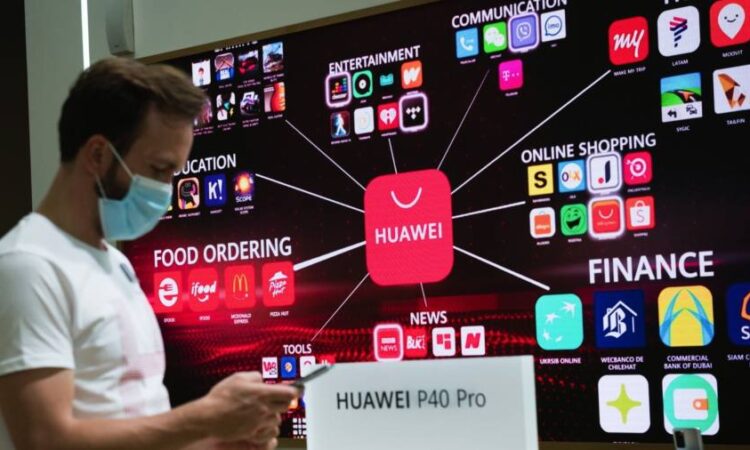
We have a scoop today on the EU, which is funding Huawei to run cutting-edge research on technology ranging from artificial intelligence and cloud computing to 6G, even though the bloc has pressed for stricter curbs on the Chinese tech giant.
The Financial Times identified Huawei as a participant in 11 projects under the EU’s flagship Horizon Europe research and innovation programme, receiving up to 14 per cent of funding per scheme totalling €3.89mn.
More significant than the value of the funding is the fact that it puts Huawei at the heart of sensitive technologies in Europe despite moves by about a third of EU countries to push out “high-risk vendors” from 5G infrastructure.
Huawei provides infrastructure equipment and AI platforms for the EU-backed research projects, which also include quantum sensing, connectivity and a framework for autonomous driving.
Some analysts warned the company’s participation could undermine data security within the bloc as well as the EU’s ambition to stay self-reliant in developing critical technological infrastructure.
Here’s what else I’m keeping tabs on today:
-
Interest rates: The US Federal Reserve is set to pause interest rate rises for the first time in more than a year, following 10 consecutive increases.
-
Partygate: The UK government begins preparations for by-elections in seats held by Boris Johnson and his ally Nigel Adams, who have both quit as MPs. The former prime minister faces Tory calls to ban him from returning to parliament.
-
Economic data: The EU and UK have industrial production figures for April, while Britain also reports its gross domestic product estimate and trade data for the same month.
Five more top stories
1. Crispin Odey threatened to sue the UK Financial Conduct Authority over its probe into sexual misconduct at his firm, according to people familiar with the matter. His lawyers argued the regulator had failed to clearly demonstrate how allegations of sexual misconduct risked harming the integrity of financial markets. Read the full story.
2. France’s finance minister has promised a renewed push to cut public spending on everything from energy subsidies to property tax credits after the country narrowly avoided a downgrade from S&P Global Ratings this month. Read the FT’s full interview with Bruno Le Maire.
3. Donald Trump has pleaded not guilty to 37 charges related to his handling of classified documents during an initial appearance to answer an indictment at a US federal courthouse in Florida yesterday. Trump later called the charges “the most evil and heinous abuse of power” in US history.
4. Big asset managers are buying up UK government debt again after two-year gilts suffered a sharp sell-off yesterday, with yields surging 0.25 percentage points to 4.89 per cent, the highest level since 2008. The price moves extend a dismal year for gilts compared with US and other European bond markets, and some investors see the yawning gap as an opportunity.
5. Vladimir Putin has backed his defence minister’s plan to centralise control over irregular forces fighting in Ukraine, appearing to side with the army in its long-running dispute with Wagner founder Yevgeny Prigozhin, who has pointedly refused to obey. Read more on the Russian president’s move.
-
Related: African leaders were “working to bring pressure” on Putin to end a war that has caused a cost of living crisis on much of their continent, the president of Sierra Leone told the FT.
The Big Read

Fortenova is Croatia’s largest privately owned company with 45,000 staff and annual revenues sometimes exceeding 10 per cent of the country’s gross domestic product. But the company faces a big problem: its majority owner is Sberbank, the Kremlin-owned giant. Now stuck in limbo and facing potential default, the European Walmart-equivalent is struggling to ditch its Russian owners.
We’re also reading . . .
Chart of the day
Inflation is “taking a lot longer” than hoped to come down, Bank of England governor Andrew Bailey said yesterday, as investors bet on further interest rate rises on the back of strong wage data in the UK.

Take a break from the news
Books about large regions or countries, be it Europe or China, often stay at the level of the macroscopic and analytical. But Ben Judah’s This Is Europe promises something different. “You want what politicians and pundits and political scientists can’t give you,” he writes in his preface. And Judah delivers on that promise, the FT’s Yuan Yang writes in this glowing review.
Additional contributions by Benjamin Wilhelm and Gordon Smith






